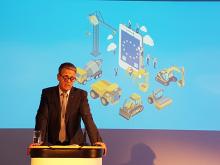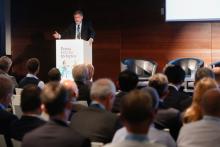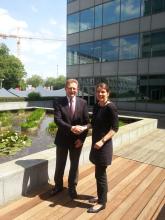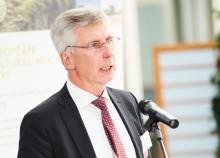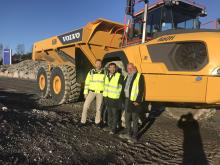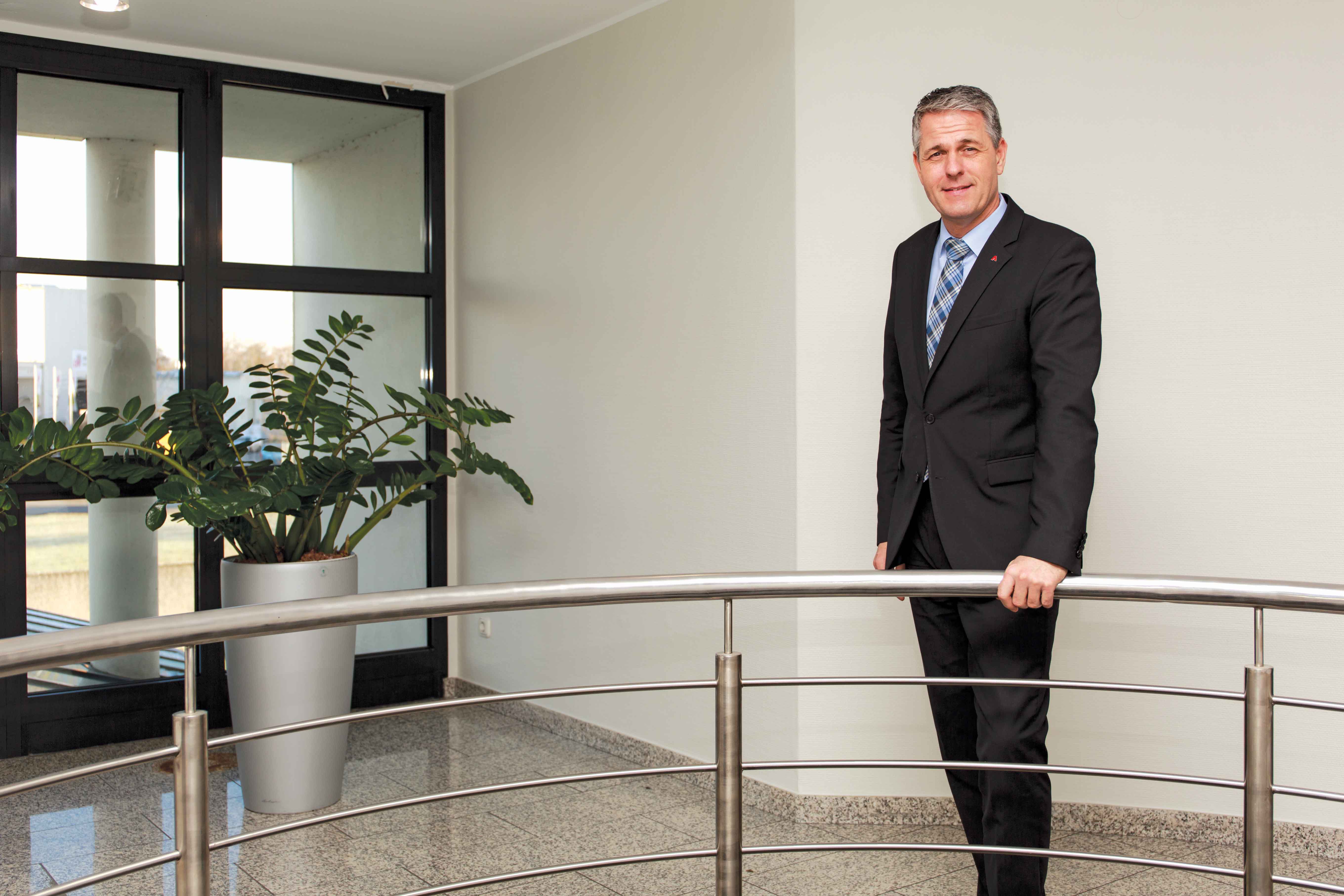
These are interesting times for the European construction equipment market, and Bernd Holz is looking forward to playing a big part in industry events. The new president of CECE (the Committee for European Construction Equipment) recently took up his tenure, succeeding Eric Lepine of
Holz, who is managing director of
The new CECE leadership team is completed with Giampiero Biglia (CNH Industrial, Unacea) who moves from second to first vice president, and Lars-Göran Andersson (SACE, Volvo) who was recently elected CECE second vice president.
Born in Bremerhaven, Germany, Holz holds a Master of Business Administration (MBA) and a Diploma in Industrial Engineering (Transport Engineering/ Logistics), and he says the organisation’s main priorities can be roughly grouped into three areas: environment, safety and market access.
“In addition, CECE works to strengthen the sector’s visibility. The CECE priorities for the next term include the completion of the new engine exhaust emissions legislation in all its technical detail, as well as activities in the fields of outdoor noise regulation and machine safety standards, including the drafting of a new standard for machine visibility.
“CO2 emissions reduction, market surveillance and trade barriers remain important topics too. In addition, everything to do with resource efficiency is gaining more and more attention.” Dialogue and credible information are key to achieving these targets.
“Take the engine emissions file for non-road mobile machinery: the Stage V introduction dates are challenging for construction equipment manufacturers and companies urgently need a final document to facilitate the production of new-stage machines in a secured manner.
“CECE has gone a long way to inform policymakers of what’s technically and economically feasible for industry.
“We’ve pointed out the diversity in the sector: the multinationals; the SMEs; the technology leadership as well as the costs and the burden of increased complexity. CECE has done this in partnership with related industry associations. Concerted effort and first-hand industry input are essential in any legislative process.
“And the work doesn’t stop there. Again, let’s take the engine emissions file. EU regulators should, now, ensure a level playing field in Europe, whether in the coordination and harmonisation of local requirements for low-emission zones, or in the enforcement of market surveillance, preventing non-compliant machines from entering EU terrain and distorting the market.”
Asked how he see CECE at present, Holz says: “CECE is the recognised organisation representing and promoting the European construction equipment sector and related industries towards the European Institutions and other organisations worldwide. CECE is also the established source of factual and technical information on the European construction equipment sector.
“CECE will continue its work to further strengthen the profile of the European construction equipment sector, reinforcing its communication towards EU policymakers and other stakeholders by describing and promoting the importance of the sector for the European economy and society at large.”
CECE is the voice of the European construction equipment manufacturers. It coordinates the views of its members, 13 national associations, and their members (the construction equipment manufacturers), with the aim of achieving a fair and competitive regulatory environment via harmonised standards and other relevant policy means, says Holz.
To that end, CECE monitors upcoming European legislation, forms the industry position on specific subjects and actively communicates the views and interests of the sector to European legislators and other regulatory bodies. CECE also organises the collection of a number of European market statistics for many types of construction equipment, regularly polls the sector on the business climate, and participates in a worldwide statistical exchange.
“CECE functions as a European network organisation with a secretariat in Brussels, Belgium, and regularly involving staff and expertise of the national associations as well as company representatives. “This approach facilitates an informed dialogue with the European institutions as well as facilitating timely input from across the industry, members of which are often small and medium-sized companies in addition to global players.
“The daily tasks are managed by the CECE office in Brussels, supported and supervised by the Executive Committee, composed of the managing directors of the thirteen national construction equipment associations that are the members of CECE.”
Twice a year, the CECE Steering Group gathers the presidents of the national member associations, who review achievements and set priorities. The Steering Group is chaired by the CECE president, who is also the first CECE representative in external relations, supported by the secretary general.
“The work of CECE is organised by topic as well as products. For the large amount of technical regulatory dossiers two Commissions and several Project Teams have been established. The High-Level Technical Policy Advisory Group (HLTPAG) consists of CTOs of companies with a strong interest in European topics, nominated by the national member associations. The Technical Commission (TC) brings together a wide variety of technical experts from national associations and companies.”
“CECE has a dedicated team in Brussels and the exchange between the national associations and member companies functions well as well. For the moment I mainly seek continuity and, when I am more experienced in my position and have a better overview, I will look for areas that can be improved or where processes can be made more efficient.”
Holz says that CECE is continuously monitoring relevant trends and developments, and will put them on the agenda for industry if needed. “An item of particular attention in the near future will be the issue of skills development and the availability of future engineers. Our sector needs well-skilled young professionals to conceive, design, manufacture and maintain the machines of tomorrow.
“CECE members and manufacturers already undertake several activities at national level to illustrate the attractiveness of developing a career in the construction machinery and equipment industry. We will make an effort to put these initiatives in the spotlight and add a European dimension where relevant.”
Is CECE trying to encourage more companies to join?
“CECE is an association of national associations in Europe who, in turn, are always active in recruiting more member companies on board. CECE actively involves both the national organisations and the companies in the work that needs to be done: in the working groups, in the external representation. It’s truly a community at work, together.”
He sees resource efficiency as an increasingly important topic in European policy, and CECE follows developments closely.
“For many in our sector, recycling is already part of our day-to-day business: take the crushing or milling machines that mill asphalt roads. In many cases the recycled materials are used with fresh materials to generate new products. So, recycling is today important and will become more important in the upcoming years.” As for young people looking to build a successful career in the industry sector? “We need young people who have the dream to be part of an industry sector that is building roads, bridges and buildings.
“Furthermore, these young people should be intelligent, eager, clever and creative. They can become a part of constructing our infrastructure in Europe in the future which is a big challenge, but a good motivation at the same time in the day-to-day business.”
As for Holz himself. “I am happy if I am able to finish my daily tasks that I have planned to do.”

